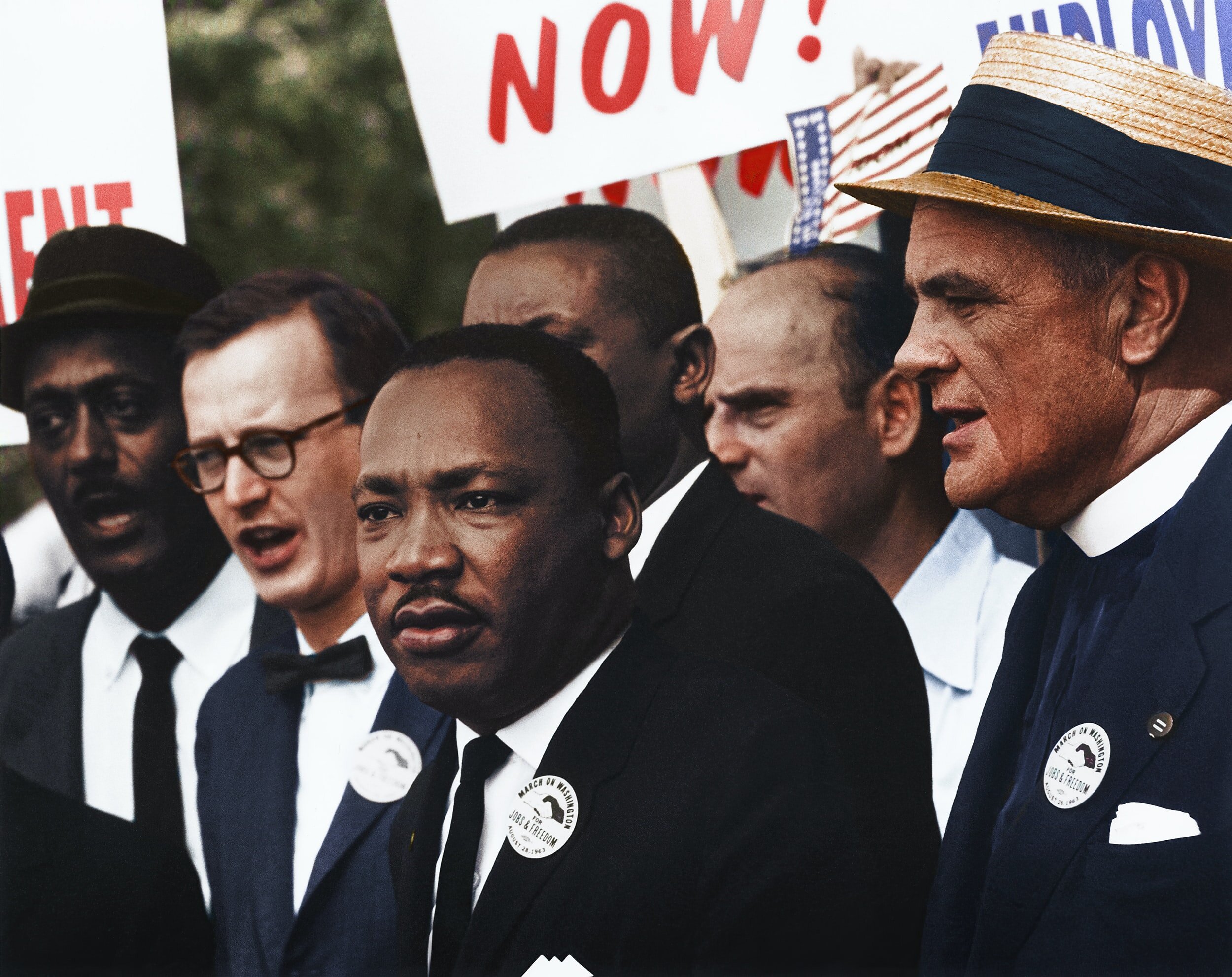Research with Black Participants: Scholars Rethink Methods and Methodology
by Janet Salmons, PhD, Research Community Manager for SAGE Methodspace.
The Methodspace focus for Q1 of 2023 is on research design, including identifying problems that merit investigation and finding ethical ways to study them. We have particular considerations when designing research that involves collecting data from human participants. If we want to study under-researched or vulnerable populations, we need to think about respectful ways to do so. Simply recruiting a different population but going about the study in the same way we have before might not be adequate, or ethical.
This collection of open-access articles offers examples of careful thinking about methods selected for studies that engage Black participants. Researchers used theater and storytelling, dance and photography, social media and podcasts in studies from a variety of disciplines.
Allen, Q. (2020). Examining the Multiple Sites of Meaning in a Participant Photography Project With Black Male College Students. International Journal of Qualitative Methods, 19, 1609406920944090. https://doi.org/10.1177/1609406920944090
Abstract. Participant photography is a visual method that has been widely used in research to elevate the voices of historically marginalized populations. Although much has been written about the nature of the visual method, including its benefits and challenges, less is known about how meaning is made of the visual images as they move throughout the research process. To this end, this article draws upon data and the methodological notes from a research study examining Black masculinities and employs a critical visual methodology to examine the different sites of meaning-making in a participant photography research project with Black college men. First, the participant reflections on the visual methodology will be used to examine the image production process, which includes the men’s decisions regarding photographic tools and their image-making strategies. Then, select images from the project and the corresponding narratives will be shared and situated within the social context in which they were produced. Finally, this article will discuss practical and ethical considerations regarding the circulation and audiencing of the project images and conclude with a discussion of the lessons learned in using a critical visual methodology to explore how meaning is made in a participant photography project with Black men.
Brent, R., Orr, M., Brawner, C. E., & Mobley, C. (2021). Who Tells Your Story? A Card-Sort Activity for Eliciting Authentic Narratives. International Journal of Qualitative Methods, 20, 16094069211053104. https://doi.org/10.1177/16094069211053104
Abstract. Card sorting has been used in qualitative studies in various fields to better understand how individuals organize information and make choices based on it. As part of a mixed-methods study of why Black engineering students initially chose their major and why they subsequently decided to persist in or switch out of it, we developed a card-sort activity and used it in 79 semi-structured student interviews. Besides generating data relevant to the mission of our study, the activity shifted the students' focus to their own experiences and away from the interviewers, who were not matched with them on race or age and with whom there was a power differential (interviewers with doctorates talking with undergraduates). The article contains a brief overview of the broader study, a description of steps taken to promote authentic storytelling by the interviewees, an outline of the development and application of the card-sort activity, representative findings, and recommendations for other researchers contemplating using a similar technique. We believe our experience in using the card-sort technique and our subsequent mixed-method analysis of the resulting data will benefit qualitative researchers seeking authentic stories.
Conley, T. L. (2022). Encoded Subjectivities: Interpreting Blackness and Representations of Black Women on inDmix.com. Social Media + Society, 8(2), 20563051221107635. https://doi.org/10.1177/20563051221107635
Abstract. The study of Black digital and Internet cultures is a burgeoning site of inquiry. While prior research on identity and the Internet does well to address racialized experiences online, further exploration into so-called niche or under-the-radar Black digital spaces is necessary for a more comprehensive documentation of early Internet applications, practices, and digitally mediated sociality during the early 20th century. This article centers Black southern Internet culture by examining the website, InDmix.com, a photo-based asynchronous web media platform, and one of the first Internet visual catalogs of southern Black college nightlife of the aughts. Combining scholarly inquiry with first-person storytelling, this article provides historical references to contextualize an aspect of early Black Internet culture while arguing that Black women, in particular, mediate the process of visibility and valuation since they carry conceptions of beauty and Blackness across the platform. Engaging with concepts of architectural Blackness and informational Blackness, this article demonstrates the ways in which southern Black youth culture combined with early Web 2.0 technology practices provides a digital snapshot of college and urban nightlife experiences along the backdrop of socioeconomic and cultural shifts in the Gulf Coast region of the United States. In the spirit of documenting Black digital cultures, this article concludes with a conversation with founder Ikem Onyekwena, the Phi Beta Sigma photographer and tech entrepreneur who founded InDmix.com in 2004.
Ireton, C. L. (2023). Black Thought in European History. European History Quarterly, 53(1), 21-25. https://doi.org/10.1177/02656914221143667
Abstract. While the call to centre Blackness in European history is an admirable one, we – as historians – must go beyond tracing the presence of Black Africans and their descendants in European history and think more carefully about the methodological implications for accounting for the diverse intellectual legacies of the African Diaspora in Europe and its empires. In particular, as historians, we have the responsibility to explore how enslaved and free Black Africans in the early European empires reckoned with the brutality and violence of the Atlantic world that they were forced to inhabit, and the different ways that they engaged with and shaped the intellectual life of diverse European and colonial societies. This involves, in the first instance, engaging in important methodological discussions about how we practise history and accounting for the theoretical implications of generations (and centuries) of epistemic erasures of diverse intellectual histories of Black thought in colonial societies.
Keating, F. (2021). Black men’s conversations about mental health through photos. Qualitative Social Work, 20(3), 755-772. https://doi.org/10.1177/1473325020922293
Abstract. This paper presents findings from a photovoice project that was aimed at engaging with a diverse range of black men in a London Borough. The key objectives were to find a different way to get men to talk about their concerns and to raise awareness about mental health. Photovoice is a participatory research action technique that was developed to enable communities to document their concerns and experiences of community life that is meaningful to them. Nineteen men participated in the project. It has been suggested that men, in particular, black men do not find it easy to talk about mental health issues. This study found that through the use of photovoice methods, black men were able to talk about a range of emotions when they were offered the right medium and safe spaces to share their experiences. It found that they can and want to take control of their lives, but at times may require life skills training. Another finding was that black men have to balance expectations about being strong whilst ‘containing’ vulnerabilities in racialised contexts – being hard on the outside and human on the inside, and that their experiences are characterised by journeys of significant struggle and resilience in the face of adversity. The paper concludes that mental health services should find ways of engaging with black men differently, i.e. reaching out rather than the traditional mantra of ‘outreach’.
Noxolo, P. (2022). Geographies of race and ethnicity 1: Black geographies. Progress in Human Geography, 46(5), 1232-1240. https://doi.org/10.1177/03091325221085291
Abstract. This first of three progress reports gives a brief overview of the new field of Black Geographies. It elucidates Black Geographies as a field that not only critiques the erasure of Blackness within the whiteness and coloniality of geographical thought, but also centres Black spatial thought and agency. Thus, Black Geographies is an im/possible undertaking. Nonetheless, Black Geographies speaks not only about the spatialities of Black people but overwhelmingly speaks from the voices of Black geographers: Geography will need to recruit and retain enough Black geographers to make such an undertaking truly possible.
Royston, R. A. (2022). Soulcraft: Theorizing Black Techne in African and American Viral Dance. Social Media + Society, 8(2), 20563051221107644. https://doi.org/10.1177/20563051221107644
Abstract. This article proposes the notion of soulcraft as an alternative framing for the work that Africans and African diasporans imbue upon material culture and social projects. Through ethnographic encounters with the practitioners of Chicago Footwork and Afrobeats dance music, the author theorizes a Black vernacular approach to the concept of techne. This essay contributes to discourse in the philosophy of technology to document spirituality in viral dance practices and forms of digital embodiment, linking them to metaphysical understandings of “soul” in African and African American philosophical thought. Interviews and critical analysis of digital media help the author illustrate the ways that these African and diasporic media innovators elide the dualistic distinctions between material tech-making and spiritual strivings, in service of an emancipatory ethos for technology.
Smith, A. D. (2022). The Black Podcaster-Scholar: A Critical Reflection of Using Podcasting as Methodology as a Black Doctoral Student. Social Media + Society, 8(3), 20563051221117576. https://doi.org/10.1177/20563051221117576
Abstract. I am a Black woman, a doctoral candidate, and a podcaster. In every facet of those identities, I have been worried about my voice. As a young child, teachers pushed me to sound “collegiate” and not “ghetto” so I could impress our private Christian school’s predominantly White and male board of directors. My graduate and doctoral programs led me to challenge and critique previous ideologies around voice and audience, while also perpetuating gatekeeping via academic jargon. Podcasting became a way for me to resist falling into the social norms of voice in the academy, but not without confronting challenges the industry itself carried around voice as well as my own insecurities. Beyond a text replacement and a way for doctoral students and faculty to widen their audience and build a brand, podcasting in the academy should be recognized as a critical reflective praxis for scholars that centers the voices of those that often go silenced or ignored. This article is a critical reflection of my methodological use of podcasting to resist data collection norms and traditional research boundaries in the academy while also confronting my own internalized anti-Blackness surrounding Black sonic existence.
Spates, K. (2012). “The Missing Link”: The Exclusion of Black Women in Psychological Research and the Implications for Black Women’s Mental Health. SAGE Open, 2(3), 2158244012455179. https://doi.org/10.1177/2158244012455179
Abstract. Critical examinations of epistemology argue that White men have established the guidelines for scientific knowledge. Because other groups were never allotted the opportunity to contribute to the immense knowledge base, the Western scientific knowledge base remains deficient. The author calls for a more inclusive knowledge base that includes the voices of Black women in the field of psychology. This inclusion is critical to better equip mental health clinicians to handle the unique needs of this population. This article offers a historical analysis of the intricate relationship between race and scientific knowledge. The author examines how the close-knit relationship between race and science has directly influenced the existing scientific knowledge gaps surrounding Black women in the field of psychology and calls for literature to offer a more comprehensive view of Black women’s experiences.
Walton, Q. L., Kennedy, P. P., Oyewuwo, O. B., & Allen, P. (2022). “This Person is Safe”: An Exemplar of Conducting Individual Interviews in Qualitative Research with Black Women. International Journal of Qualitative Methods, 21. https://doi.org/10.1177/16094069221147776
Abstract. Significant conceptual and empirical evidence has been found through qualitative research about the benefits, limitations, and uses of individual interviews. However, there is scant research illustrating how researchers use specific techniques that center participants’ intersecting identities to build rapport, trust, and authentic connections during individual interviews, and especially during interviews with Black women. We illustrate how we used eight empirically grounded techniques in our qualitative individual interviews with Black women. Through our analysis of the interviews, the concept of safety emerged. “This person is safe” reflects the combined stories the women reported regarding their experiences engaging in individual interviews. In this article, we provide a brief background on individual interviewing in qualitative research, followed by the framing of our work. Thereafter, we provide context about the exemplar study, outline techniques shown to be effective in the literature, and provide examples from the exemplar study to show how each technique was used. Further research is needed to examine how researchers use various techniques in qualitative individual interviews in general, but with Black women more specifically.
Wasmuth S, Milton C, Pritchard K, et al. Narrative Theater to Examine and Mitigate Anti-Black Racism Within Occupational Therapy. OTJR: Occupational Therapy Journal of Research. 2023;43(1):81-89. doi:10.1177/15394492221078190
Abstract. Theater has long-standing roots in social justice and holds promise for reducing racist attitudes and behaviors. Objectives of this study were to (a) collect and theatrically portray narratives from Black occupational therapy students and practitioners to a national audience and (b) examine the impact of the theatrical performance on anti-Black racism among attendees. The Identity Development Evolution and Sharing (IDEAS) model guided translation of narratives into a filmed performance. Paired t-test of pre/post administration of the Acceptance and Action Questionnaire–Stigma (AAQ-S) measured changes in stigma beliefs. Qualitative thematic analysis of an open-ended post-survey question elucidated experiences of the performance. The performance engendered significant decreases in stigma; qualitative data elucidated potential mechanisms of change. This study provides insight into experiences of anti-Black racism within occupational therapy and offers a promising means for occupational therapists to engage in anti-Black racism.



























Read this collection of multidisciplinary articles to explore epistemological questions in Indigenous research.